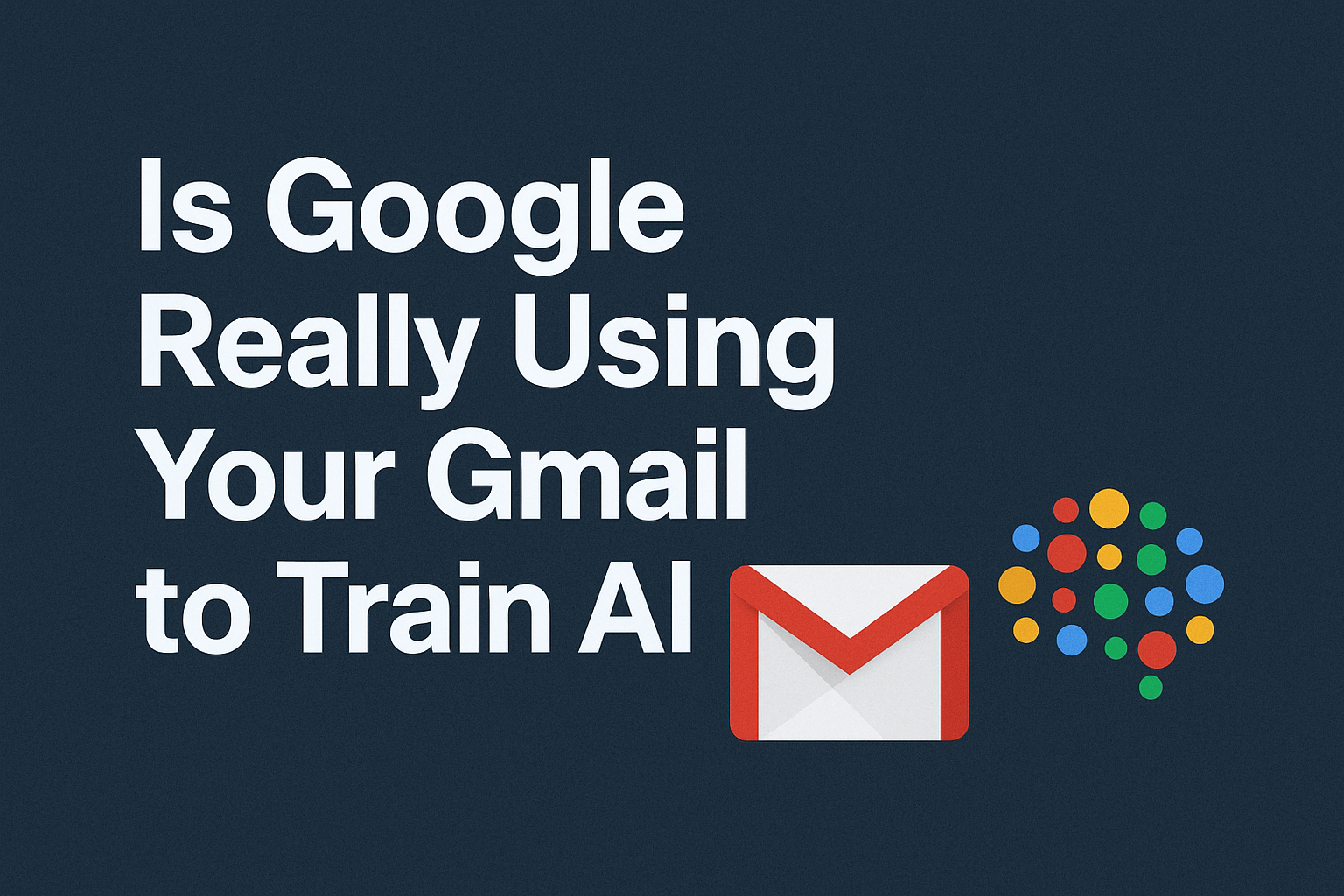Is Google really using your Gmail to train AI—Or is the internet getting it wrong?

A wave of alarming posts on social media has sparked fresh panic among Gmail users, claiming that Google is quietly tapping into private emails and attachments to train its AI systems. From viral X threads to high-traffic blog posts sounding the alarm, the message is the same: Gmail users have allegedly been automatically opted in to share their data unless they manually turn off Google’s “Smart Features.”
But Google insists this narrative is misleading.
According to Google spokesperson Jenny Thomson, the company has not flipped any new switches in the background, nor has it reconfigured user settings without consent. “Gmail Smart Features have existed for many years, and we do not use your Gmail content for training our Gemini AI model,” Thomson told The Verge. Google maintains that its personalization tools—such as spell-check, smart suggestions, order tracking, and automatic calendar entries—use internal processing to enhance user experience but are not fed into broader AI-training pipelines.
Still, several users have reported finding themselves re-enabled in certain smart features they previously turned off. This added fuel to the fire, creating confusion about how deeply Gmail interacts with personal content and what exactly Google uses for AI development.
Earlier this year, Google updated how personalization is categorized across products. Users now have separate toggles for Google Workspace features (including Gmail, Chat, and Meet) and smart features embedded in other Google products such as Maps, Wallet, and Google Assistant. Both categories can influence the way personalization works, so users need to manage each area independently—leading some to misunderstand the change as a stealth re-activation.
The underlying concern is part of a broader debate about the growing appetite for real-world data to fuel large AI models. With companies racing to build more capable systems, private digital content—from emails to meeting transcripts—has become a highly valuable resource. In fact, a recently filed class-action lawsuit alleges that Google has “secretly accessed and exploited” users’ email histories to advance its Gemini AI. Google strongly denies this claim.
Despite the explanations, many users remain uneasy. Pew Research Center notes that most Americans want more say in how AI interacts with their lives, especially when it comes to deeply personal information like private messages.
The good news: users still have full manual control.
If you prefer not to let Gmail analyze your email behavior—whether for personalization or for AI-powered features—you can disable Smart Features in two separate settings menus. Turning them off, however, comes at the cost of losing conveniences like predictive text, Smart Compose, automatic sorting of promotions and social updates, and even certain spell-check functions.
That trade-off is becoming the new reality of digital privacy: the balance between convenience and control.
For privacy-conscious users, manually double-checking Gmail’s AI-related settings is a simple step toward peace of mind. As AI continues to evolve, staying informed—and making intentional choices about your data—may be the most important feature of all.
FAQ
1. Is Google using my emails to train its AI models?
Google says no. The company insists Gmail content is not used to train the Gemini AI model.
2. Why did people think they were automatically opted in?
A settings update created separate controls for Workspace smart features and general Google product smart features—leading to confusion.
3. Can I stop Google from using my Gmail data for personalization?
Yes, you can turn off Smart Features in two areas of your Gmail settings.
4. What do I lose if I disable Smart Features?
You may lose predictive text, Smart Compose, automatic sorting, and some spell-check and suggestion tools.
5. Is there a lawsuit against Google about this?
Yes, a proposed class-action lawsuit alleges unauthorized access to Gmail data. Google disputes the claims.

